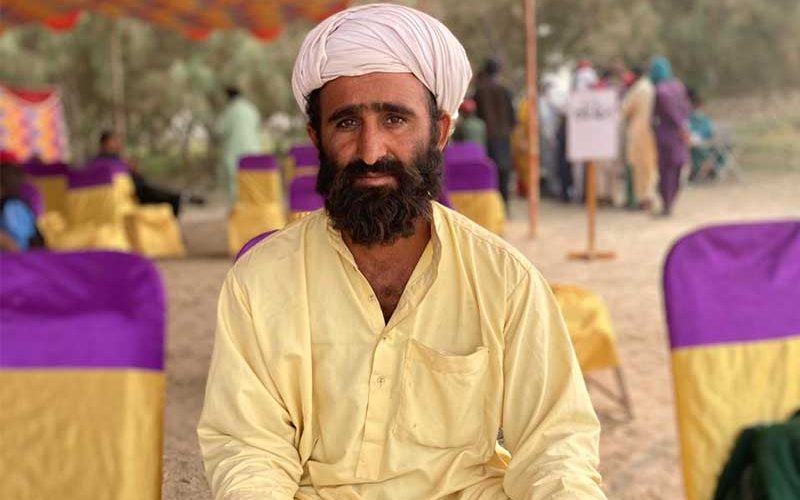A HOSPITAL ON A BOAT – Rasul Baksh
-
by
admin
“The first time we saw this massive boat, the entire island gathered around it. Men left their cows unattended, women left their stoves burning and, the kids stopped chasing the hens on the farm.
All of us ran towards the shore just to have a glimpse of this unusual thought; a hospital on a boat,” says Rasul Baksh, a resident of Rajanpur district in South Punjab, Pakistan.
This was the first time Baksh saw Indus Hospital & Health Network’s (IHHN) “Boat Clinic”. Bombarded with millions of possibilities in his mind, he asked people around him regarding the boat. Some said the boat was sent from the neighboring village to steal their crops, others said that it was sent by the government to conduct an operation in the village. “We thought that doctors from the boat would come to us, inject us with some drugs, and take our bodies away. And so, we didn’t want the boat to be anchored on our shore, no matter what they claimed they would do. We couldn’t trust these outsiders,” the elders in the village said before even visiting the boat.
Hours later, when the villagers saw the facilities on the boat, their perception completely changed. One of these villagers was Baksh, who waited for the community health workers to set up the tents for the registration process. Once he received his registration card, he slowly climbed the narrow steps of the boat, complaining of weakness, lethargy, and unbearable body pain. Upon being directed to the doctor’s room, he was greeted cheerily and received quality healthcare services free-of-cost.
Baksh walked into the doctor’s room with many doubts but stepped out completely satisfied. The “Boat Clinic” has been a symbol of hope for his community, where previously no doctor had ever set foot.
“They [IHHN] have brought healthcare to our doorstep. Previously, we had to travel miles in search of a hospital which meant spending Rs. 1,000 to 1,500 which was near to impossible for us,” says Bakhsh as he collected his medicines from the clinic; free-of-cost.





